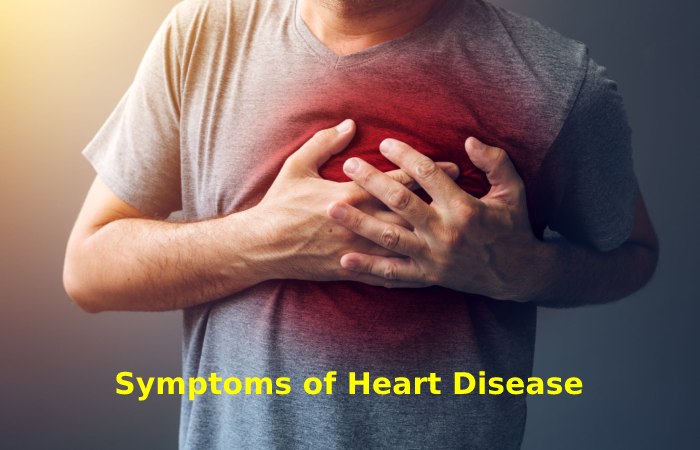Table of Contents
Heart Disease
Heart disease is the term for a number of diseases. In the United States, coronary artery (CAD) is the most common type of heart disease that interferes with the flow of blood to the heart. The reduced supply of blood can cause a heart attack.
Different Types of Heart Disease
Blood vessel disease: These include coronary artery disease
Arrhythmias: abnormal heart rhythms
Congenital heart defects: Heart defects from birth
Heart infections
heart muscle diseases
Valvular heart disease
Symptoms Associated With Heart Disease:
The signs shown by a patient with heart disorder will depend on the type he/she has been diagnosed with. For instance Symptoms in men Signs in women Fatty substances that have been deposited inside arteries due to build up over time can interfere with vessels’ walls leading to their rupture hence causing damage not only to these organs but also other parts like brain and lungs when clots travel there through narrowed or blocked arteries following myocardial infarction (MI) which may manifest itself as angina pectoris – chest pain-, stroke – cerebrovascular accident (CVA), or even sudden cardiac death (SCD).

Signs and Symptoms May Include:
- Chest pain, chest tightness, chest pressure, and chest discomfort (angina)
- Difficulty breathing
- Pain, numbness, weakness, or feeling cold in the legs or arms if the blood vessels in those parts of the body are narrowed
- Pain in the neck, jaw, throat, upper abdomen, or back
You cannot be diagnosed with coronary heart disease until you have a cardiac attack, angina, stroke, or it failure. It is essential to pay attention to cardiovascular symptoms and discuss any concerns with your doctor. Sometimes, cardiovascular disease can be caught early with regular checkups.
Types of Heart Disease
Heart disease refers to a condition that affects the cardiovascular system. There are several types of cardiac disease that affect the heart and also blood vessels in different ways.
The following paragraphs discuss the different types of cardiac disease in more detail.
Coronary Artery Occlusion
Coronary artery disease, also known as coronary artery, is the most communal kind of heart disease. It develops when the blood supply blood to the heart becomes clogged with plaque. This causes them to hold up and shrink. In addition, plaque contains cholesterol and other substances.
As a result, the blood supply decreases, and the heart receives less oxygen and fewer nutrients. Over time, the heart muscle weakens, and there is a risk of heart failure and arrhythmia. When place builds up in the arteries, it is called atherosclerosis. Plaque in the arteries can rupture due to blockages and cause blood movement to stop, which can lead to a heart attack.
Congenital Heart Defects
A being with a congenital heart defect is born with a heart problem. There are many kinds of genetic heart faults, including:
- Atypical heart valves: The valves may not open properly or may leak blood.
- Septal Defects: A hole in the wall between the lower chambers of the heart’s upper chambers.
- Atresia: One of the heart valves is lost.
Congenital heart defects can be associate with major structural problems, such as the absence of a heart chamber or problems with unusual connections between the main arteries that branch off the heart.
Heart Failure
When a being has heart failure, their heart continues to work, but not as well as it should. Congestive heart failure is a kind of heart failure that can result from pumping or relaxation problems.
Heart failure can affect by untreated coronary artery, high blood pressure, arrhythmias, and also other conditions. These situations can affect the heart’s ability to pump or relax properly. It failure can be life-threatening, but treating disease early can help prevent complications.
Conclusion
Heart disease is any disorder affecting the heart. The term is sometimes use narrowly and incorrectly as a synonym for coronary artery disease. It is synonymous with disease, but not cardiovascular disease, which is a disease of the cardiac or blood vessels.

